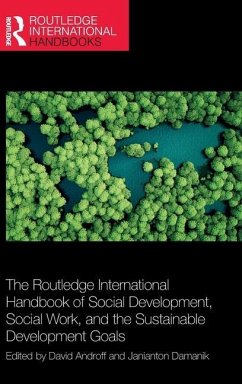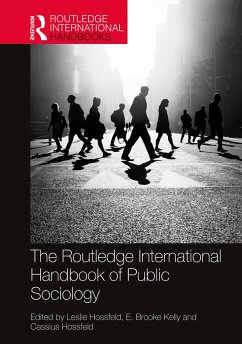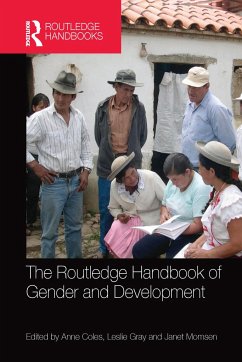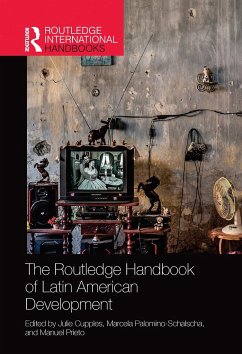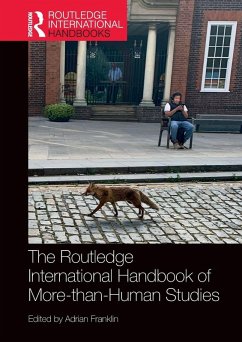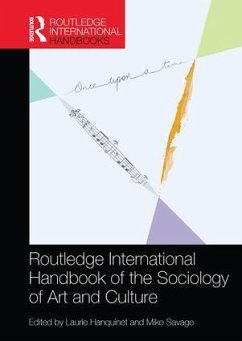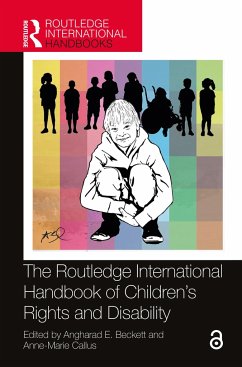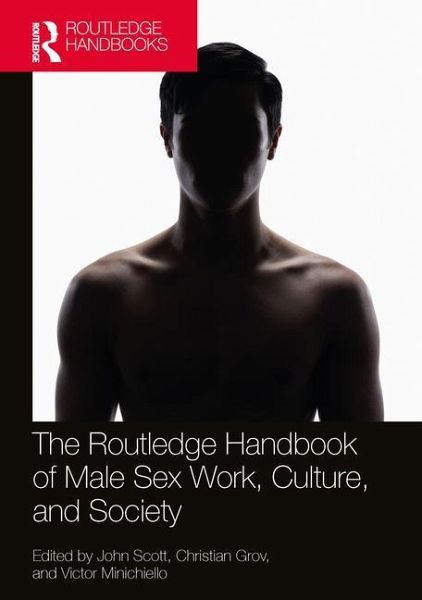
The Routledge Handbook of Male Sex Work, Culture, and Society
Versandkostenfrei!
Versandfertig in 1-2 Wochen
56,99 €
inkl. MwSt.

PAYBACK Punkte
28 °P sammeln!
Panoramic and provocative in its scope, this handbook is the definitive guide to contemporary issues associated with male sex work and a must read for those who study masculinities, male sexuality, sexual health, and sexual cultures.This groundbreaking volume will have a powerful impact on our understanding of this challenging, elusive subject. While the internet has brought the previously hidden worlds of male sex work more starkly into public view, academic research has often remained locked into descriptions of male sex workers and their clients as perverse. Drawing from a variety of region...
Panoramic and provocative in its scope, this handbook is the definitive guide to contemporary issues associated with male sex work and a must read for those who study masculinities, male sexuality, sexual health, and sexual cultures.
This groundbreaking volume will have a powerful impact on our understanding of this challenging, elusive subject. While the internet has brought the previously hidden worlds of male sex work more starkly into public view, academic research has often remained locked into descriptions of male sex workers and their clients as perverse. Drawing from a variety of regions, the chapters provide insights into the historical, popular cultural, social, and economic aspects of sex work, as well as demographic patterns, health outcomes, and policy issues. This approach shifts thought on male sex work from a hidden "social problem" to a publicly acknowledged "social phenomenon." The book challenges myths and reconceptualizes male sex work as a discretefield. Importantly, it provides a vehicle for the voices of male sex workers and new and established scholars. This richly detailed, humane, and innovative collection retrieves male sex work from silence and invisibility on the one hand and its association with scandal and stigma on the other. The findings within have profound implications for how governments approach public health and regulation of the sex industry and for how society can make sense of the complexities of human sexualities.
A compelling scholarly read and a major contribution to a commercial sector that is often neglected in policy debates on sex work, this handbook will be of great interest to scholars of criminology, sociology, gender studies, and cultural studies and all those interested in male sex work.
This groundbreaking volume will have a powerful impact on our understanding of this challenging, elusive subject. While the internet has brought the previously hidden worlds of male sex work more starkly into public view, academic research has often remained locked into descriptions of male sex workers and their clients as perverse. Drawing from a variety of regions, the chapters provide insights into the historical, popular cultural, social, and economic aspects of sex work, as well as demographic patterns, health outcomes, and policy issues. This approach shifts thought on male sex work from a hidden "social problem" to a publicly acknowledged "social phenomenon." The book challenges myths and reconceptualizes male sex work as a discretefield. Importantly, it provides a vehicle for the voices of male sex workers and new and established scholars. This richly detailed, humane, and innovative collection retrieves male sex work from silence and invisibility on the one hand and its association with scandal and stigma on the other. The findings within have profound implications for how governments approach public health and regulation of the sex industry and for how society can make sense of the complexities of human sexualities.
A compelling scholarly read and a major contribution to a commercial sector that is often neglected in policy debates on sex work, this handbook will be of great interest to scholars of criminology, sociology, gender studies, and cultural studies and all those interested in male sex work.





